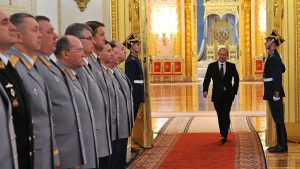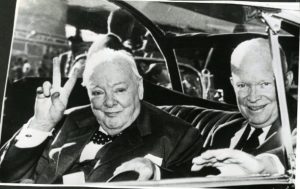“All who shall hereafter live in freedom will be here reminded that to these men and their comrades we owe a debt to be paid with grateful remembrance of their sacrifice and with the high resolve that the cause for which they died shall live eternally.”
– Dwight D. Eisenhower at the American Cemetery in Luxembourg
Private First Class Clarke E. Krivanec went missing in action on December 20, 1944, four days into the bloodbath that became the Battle of the Bulge.
Krivanec was 21 years old, an infantryman in 112th Regiment of the 28th Division, part of General George Patton’s Third American Army. Private Krivanec was from Rupert, Idaho, a graduate of Rupert High School.
Clarke Krivanec never came home from Europe. Never married. Never had a chance for a career or a family. He almost certainly never again saw his mother and father after shipping out for the European Front in September 1943.
Private Krivanec is a name lost to time, a statistic, one of the 400,000 American dead in the greatest war the world has known, a war against fascism.
When nine Nazi divisions launched their surprise offensive in the early hours of December 16, 1944, Krivenac’s 28th Division was spread along a 25-mile front in the Ardenne Forest, a dense wood that had four years earlier provided the Nazi invasion route into western Europe.
By December 20, the 28th Division – nicknamed the Keystone Division – “had been pushed back from their initial positions and was scattered across a new defensive line.” The fighting had been as brutal as the winter weather. Battling frozen hands and feet, great coats caked with snow, the division delayed the German offense, but it had been bloody costly.
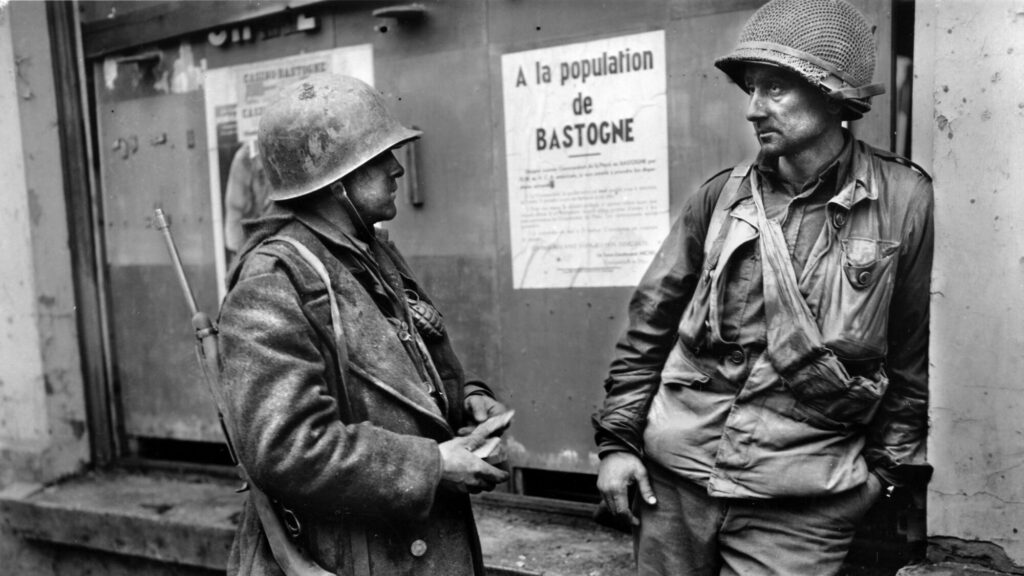
—–
As a unit history recounts the delay, “had allowed reinforcements like the 101st Airborne Division to arrive and secure the critical junction at Bastogne,” a place that lives in World War II history.
I happened upon Krivenac’s grave last weekend during a Sunday visit to the big American cemetery on the outskirts of Luxembourg City, not far from where Adolf Hitler’s Nazi forces staged the Third Reich’s last great offensive of the war. A fascist offensive. Private Krivanec got in the way of that offensive and was apparently seriously wounded in the left leg and then taken prisoner by the Germans.
We will never know whether Krivanec died of his wounds or was left to die as the course of this awful battle finally turned against the Nazis. That he was there, a young man with a life ahead of him fighting a war against evil thousands of miles from southern Idaho, is what we do know.
The U.S. War Department told Krivenac’s parents in January 1945 that he was classified as missing, and then they heard nothing for months. The brief newspaper story detailing these slim facts reported that Krivanec has been selected to attend a special, nine-month engineering training course at Washington University in St. Louis, but the story then cryptically noted, “when the program was discontinued he was assigned the infantry.”
Finally, the following January – 1946 – the Twin Falls Times-News published another story about Clarke Krivanec. “Missing for a Year, Private Listed Dead.”
The War Department’s straightforward communication simply said, “in view of the fact that 12 months have now expired without the receipt of evidence to support a continuing presumption of survival” the government’s conclusion was that the Idaho soldier had died. Sometime later Krivanec’s remains were identified and interred in the American Cemetery in Luxembourg.
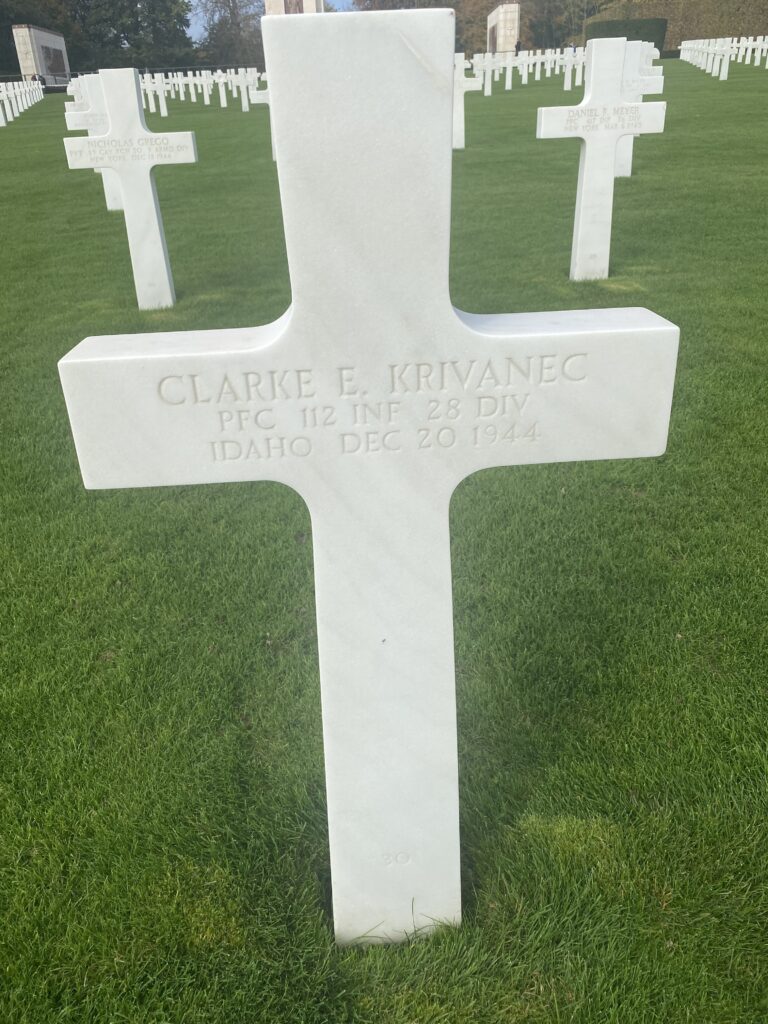
It is fitting that one of the major American war cemeteries in Europe, including a simple and beautiful chapel and other monuments is located in the tiny nation in the heart of Europe. Krivanec’s simple white marble cross resting on immaculate green grass marks the final resting spot of one of the more than 5,000 U.S. soldiers and airmen buried there. The most famous grave is that of Patton who died as the result of an automobile accident after the war ended. Patton’s wife decided it would be appropriate that he be buried where so many of his men rest in this quiet, solemn spot in Luxembourg.
The American Cemetery’s location in Luxembourg is also fitting since that nation both suffered grievously during five years of fascist occupation and emerged from that experience as dedicated as any nation to a free and democratic Europe.
Luxembourg was one of the six original members of NATO and although the pocket-sized nation has a tiny army, the country dutifully contributes two percent of its GDP to national defense, the NATO standard. It was no surprise to see flying next to the Luxembourg and Europe Union flags at city hall the flag of Ukraine.
For decades after World War II, it was an article of bipartisan political faith that American national security interests were inextricably linked to the security interests of a democratic Europe. Collective security, as demonstrated by NATO, the most effective military alliance in history, was not a subject of debate during any presidency from Harry Truman to Barack Obama.
Dwight Eisenhower, who praised the sacrifice of the dead when the American Cemetery in Luxembourg was created, was the first commander of NATO. The Alliance came to America’s aid after the attacks of 9-11. NATO has been the linchpin of collective security against Putin’s Russia, and member nations have supplied billions to Ukraine, a democratic non-member, as it fights off the continuing terror of Putin’s war.
Clarke Krivanec, the 21-year-old Idaho soldier from Minidoka County, died fighting fascism 80 years ago in Europe. By the time he died there was little question that the United States and its allies would prevail over fascist Germany. The only question was how many more Americans would die to insure the victory. Krivanec paid the ultimate price.
Eighty years on, an American political party – once the party of Eisenhower – is running a NATO-bashing fascist, a Putin apologist who has denigrated the sacrifice of American veterans as its candidate for president. Simply remarkable.
Seeing Clarke Krivanec’s white marble cross in Luxembourg is enough to make one weep for such callous disregard for his sacrifice and what it continues to mean for all of us and the world.
Clarke Krivanec was no doubt a young man imbued with many characteristics. No one in their right mind would call him a “sucker” or a “loser.”
—–0—–
One more before the election …
Inside the Ruthless, Restless Final Days of Trump’s Campaign
A must read from one of the best political reporters of his generation, Tim Alberta.
Read this piece in many ways, including that Trump’s senior advisors can’t stand the guy.
“People are calling this the most disciplined campaign they’ve ever seen,” Trump remarked to friends at a fundraiser this summer, according to someone who heard the conversation. He smirked at the compliment. “What’s discipline got to do with winning?”
Wish the country good luck. Make sure you vote.


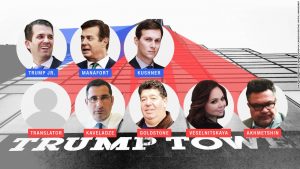
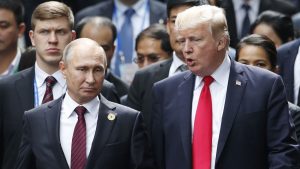
 It doesn’t take the imagination of John Le Carre to see that once Russian military intelligence hacked all that political information and the release of the information deepened divides in the Democratic Party, divides that Trump skillfully capitalized on, and the opportunistic improviser doubled down. Why not implicate the Trump campaign, his son and campaign manager, in the scheme?
It doesn’t take the imagination of John Le Carre to see that once Russian military intelligence hacked all that political information and the release of the information deepened divides in the Democratic Party, divides that Trump skillfully capitalized on, and the opportunistic improviser doubled down. Why not implicate the Trump campaign, his son and campaign manager, in the scheme?